Can you compost weeds? Experts share top tips for safely adding weeds to your heap, plus which ones never to compost
Weeds can be a valuable addition to compost, but there are a few things to keep in mind to prevent them causing more harm than good
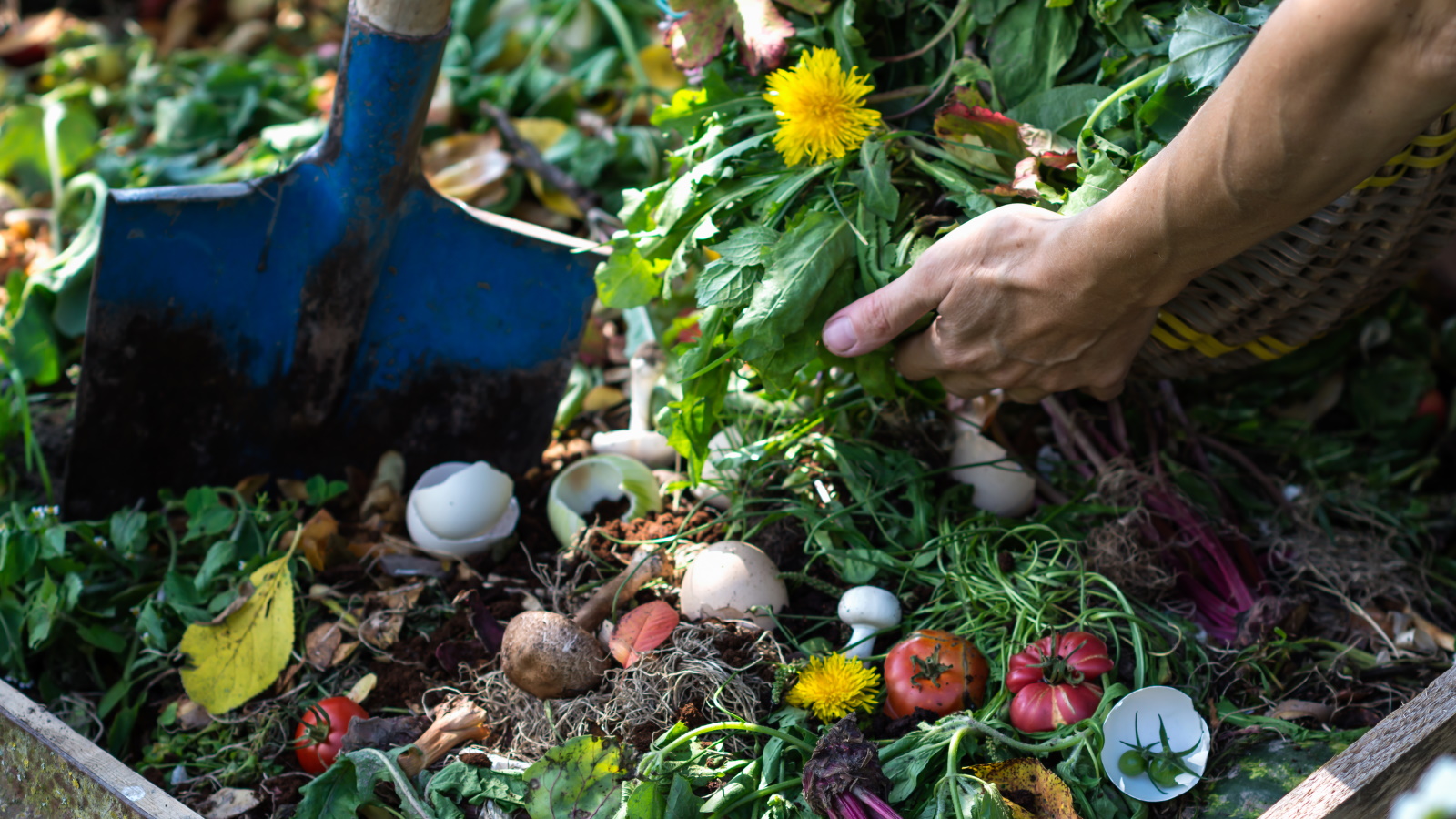

It might surprise you to know that you actually can compost weeds. Although it sounds problematic, due to the tendency for weeds to spread fast, it is possible to compost weeds effectively so they don't return - all while offering nutrient value to your compost.
It can take some time to wrap your head around what to put in your compost bin when you first start making compost, but you shouldn't be scared to try more unusual compost ingredients. Of course, there are certain weeds you should avoid putting in your compost heap that present the risk of coming back. However, some weeds can be put in your compost bin safely, contributing to a valuable fertilizer for your plants.
Here, compost experts have shared everything you need to know about how to compost weeds and which ones to avoid so you can add them to your heap correctly.
Tips for composting weeds
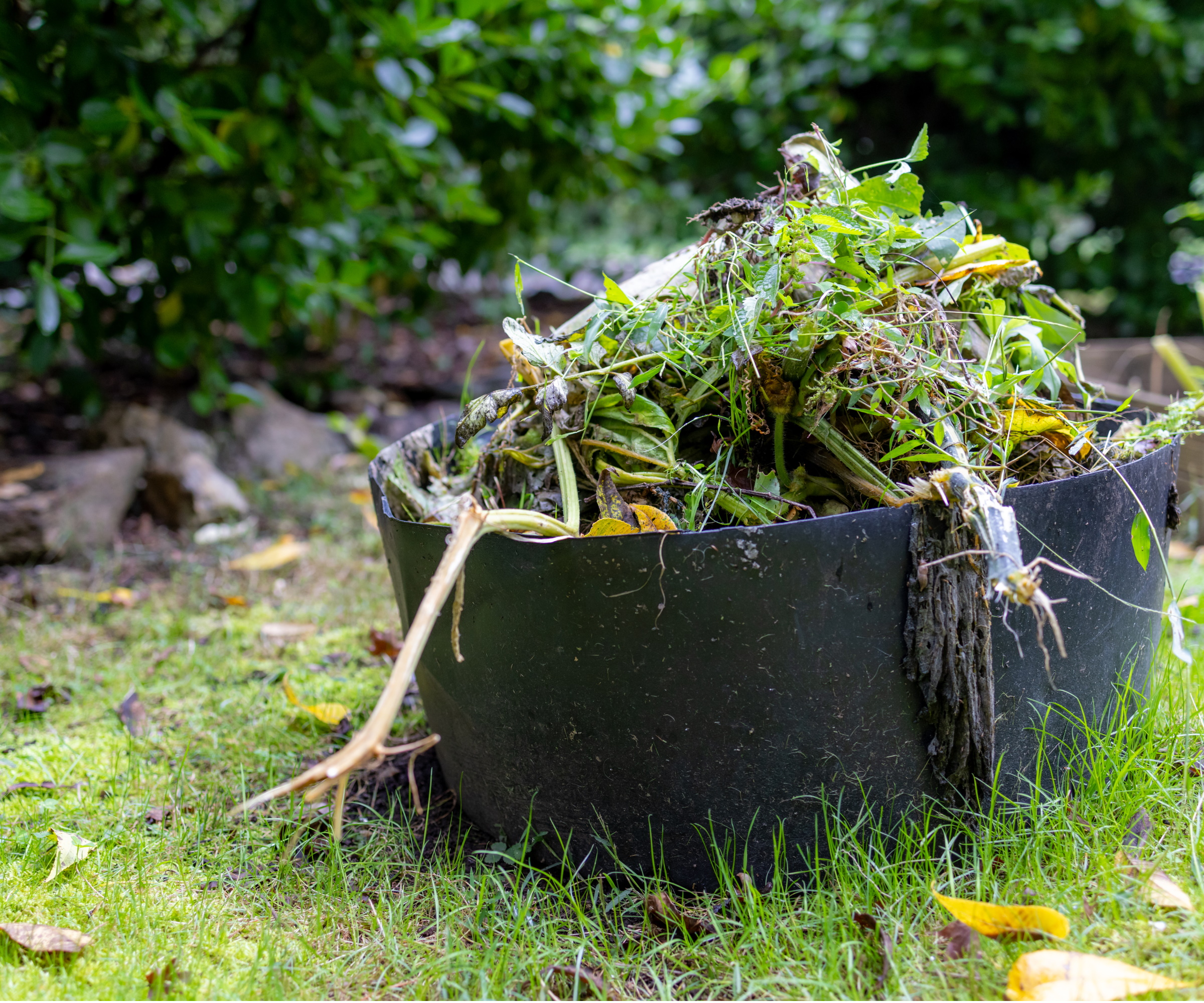
Keeping plant material aside when you get rid of weeds can provide a valuable ingredient for composting. This is because you need plenty of green materials in your compost to keep it productive and stop compost smelling bad.
Weeds that are safe to compost include annuals without seeds, dandelions, clover, and nettles. However, you do need to make sure the weeds are in the correct state to compost.
'To compost weeds effectively, ensure that those with seeds or invasive roots are either dried out entirely or 'solarized' under a plastic sheet in direct sunlight for several days, a process that helps neutralize seeds and prevent regrowth,' advises Lauren Click, founder of Let's Go Compost.
As well as this, take the extra precaution of composting weeds at a high temperature (above 130°F), Lauren notes. Hot composting will reduce the ability for any seeds to germinate. 'Breaking down weeds into smaller pieces also enhances microbial access, speeding up composting and reducing the risk of weed seeds sprouting in the compost,' Lauren adds.
To effectively break down weeds, experts also recommend getting the carbon-nitrogen ratio right. 'Keep adding lots of high-carbon materials to your weed compost and give it extra time to thoroughly break down before spreading it,' says Christen Waddell, Farmstead Manager at Blackberry Farm.
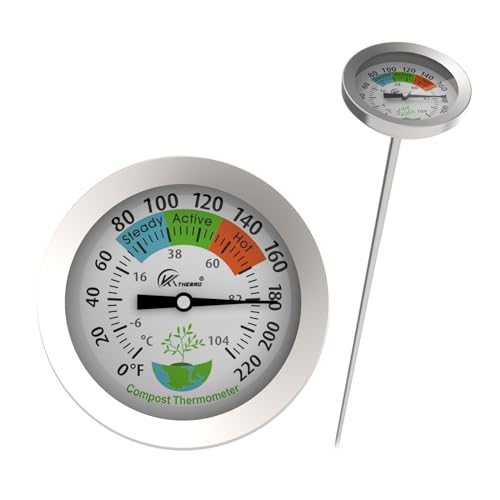
This thermometer has a colored block identification and clear scale display for immediate identification of compost temperature.

Lauren is the founder of Let's Go Compost, a 501(c)(3) non-profit with a mission to make composting free and accessible throughout the United States. Lauren works both in the dirt (literally) with public schools and community gardens, while also remaining focused on the big picture - working with large organizations and policymakers to ensure composting accessibility and affordability are kept front of mind as infrastructure is developed.
Weeds you shouldn't compost
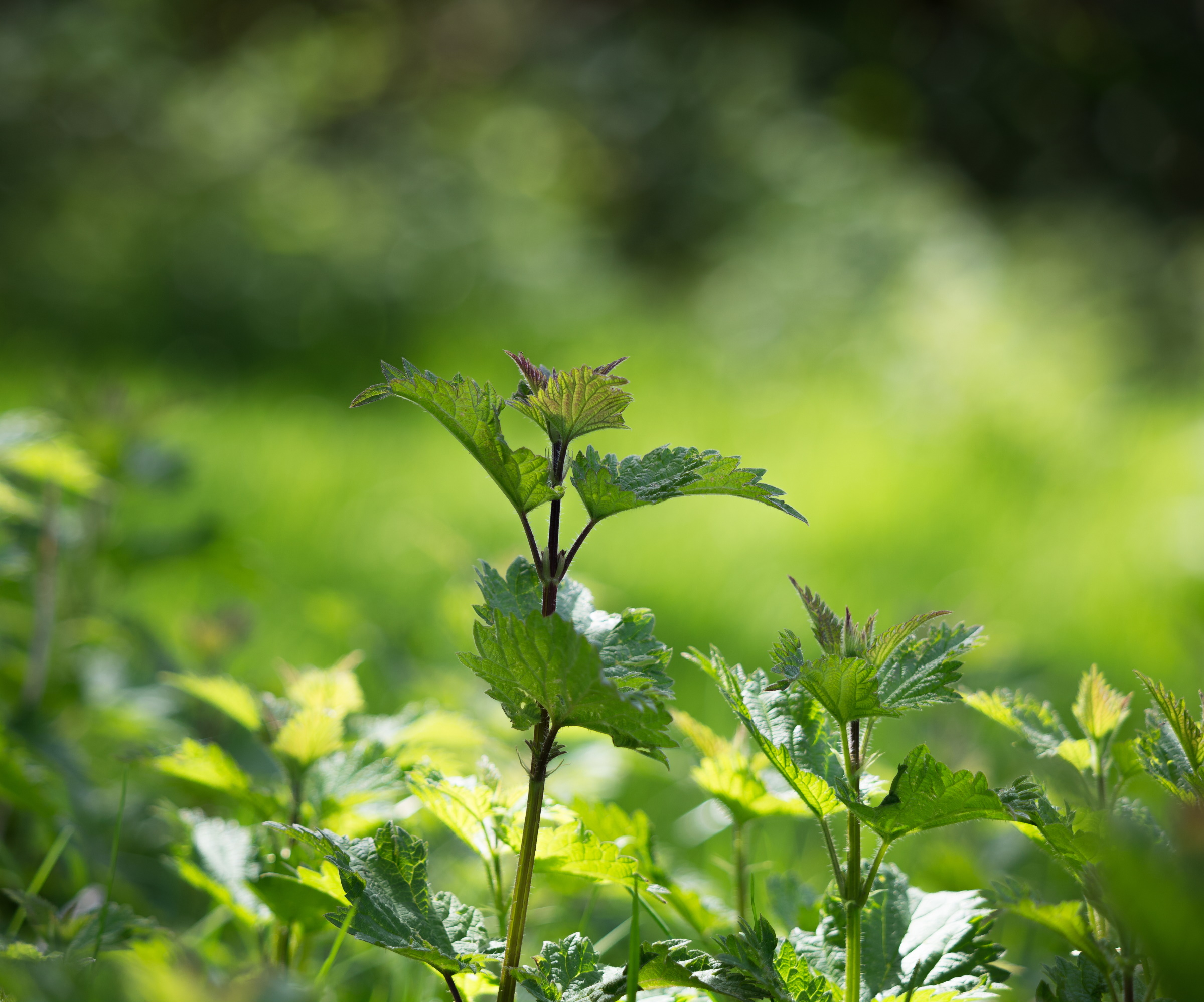
Not only do you need to know how to compost weeds correctly, but you also need to be aware of which weeds are invasive plants that are best to avoid adding to a compost heap.
'Some weeds, like bindweed, Japanese knotweed, and couch grass, are particularly resilient and can survive typical composting conditions, especially if roots or seeds aren’t fully decomposed,' says Lauren.
Problematic weeds like this often contain structures that make them resistant to low-temperature composting, Lauren explains. You should only ever compost them in a hot composter, like in this insulated compost bin from Amazon, or dispose of them separately.
If you're nervous about these weeds spreading and don't want to have to deal with the chore of getting rid of Japanese knotweed, avoid putting them in your compost.
'The reasons for this is you'll end up with compost that will just be adding more problematic weeds into your garden,' Christen explains.
'Invasive species have a higher potential for regeneration; even a small piece of root in finished compost can establish and spread in a garden, making careful weed selection crucial,' Lauren adds.
Something else to take into consideration when deciding which weeds to compost is whether they have any chemicals on them. 'Don't compost any weeds that have been treated with herbicides as these herbicides can find their way into your garden and cause damage,' warns Denis McCausland, horticulture expert and landscaper.
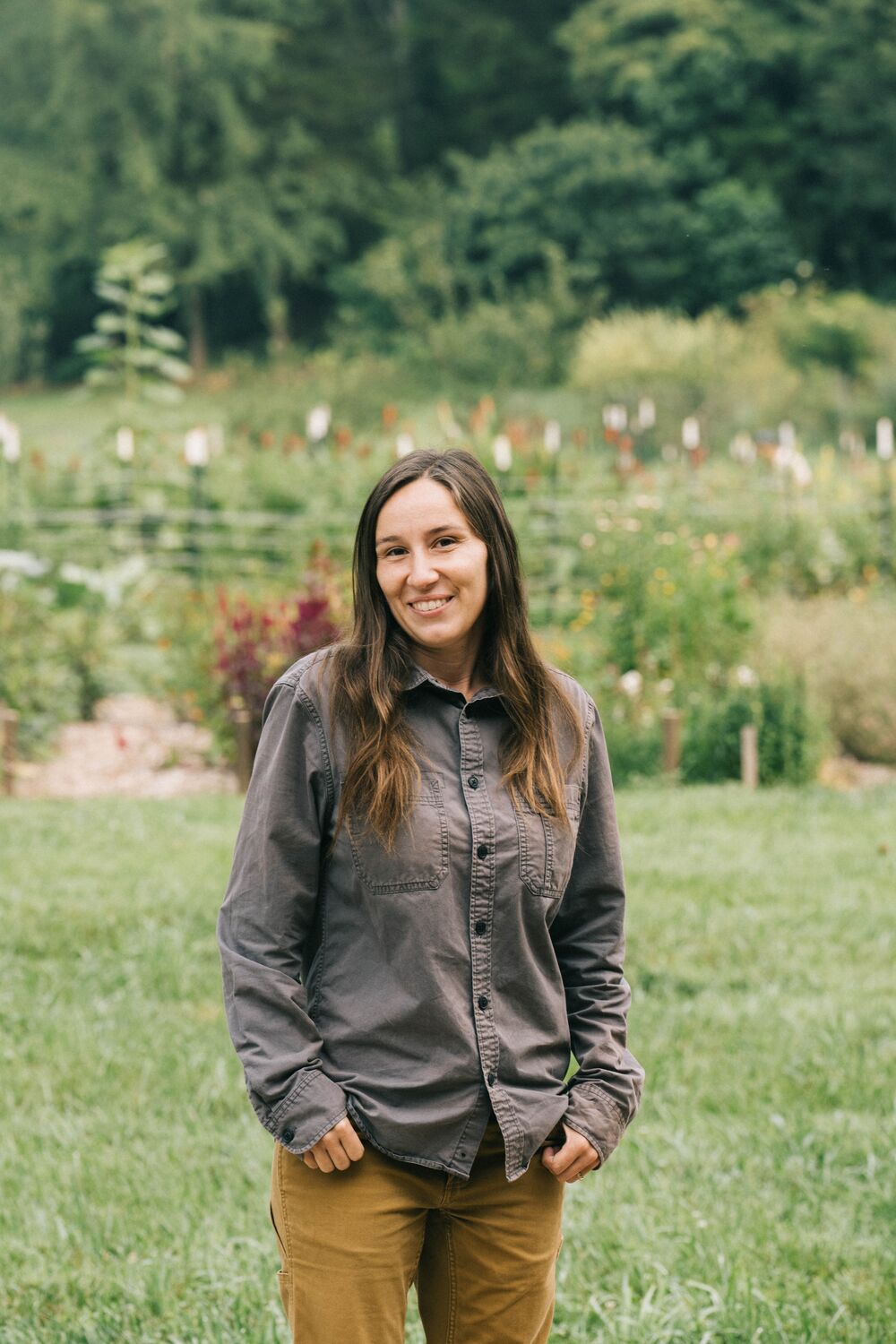
Christen oversees Blackberry Farm's Garden team, which provides renowned farm-to-table Appalachian cuisine to guests straight from the on-property garden. Scraps from the restaurants are then composted to replenish the Garden's soil.

Denis has over 30 years of experience in the landscaping industry in Denver metro. Denis holds a Bachelor of Science Degree in Horticulture from Ohio State University.
FAQs
Which plants can't go in compost?
There are a few plants you should avoid putting in your compost heap. This includes onions and garlic which have a strong scent that repels the worms, insects and microorganisms helping to breakdown your compost. Some food crops are also highly acidic and adding them to your compost heap can make your compost too acidic.
The rule of thumb with composting weeds is to avoid doing it if you're unsure whether the weed you're dealing with is safe to put in your compost bin. 'Be careful to also not add diseased plant material to your compost pile unless you are certain that your compost will get hot enough to kill the disease organisms,' advises Christen. We also recommend reading up on composting mistakes to avoid to aid your success with composting.
Sign up to the Homes & Gardens newsletter
Design expertise in your inbox – from inspiring decorating ideas and beautiful celebrity homes to practical gardening advice and shopping round-ups.

Tenielle is a Gardens News Writer at Homes & Gardens. She holds a qualification in MA Magazine Journalism and has over six years of journalistic experience. Before coming to Homes & Gardens, Tenielle was in the editorial department at the Royal Horticultural Society and worked on The Garden magazine. As our in-house houseplant expert, Tenielle writes on a range of solutions to houseplant problems, as well as other 'how to' guides, inspiring garden projects, and the latest gardening news. When she isn't writing, Tenielle can be found propagating her ever-growing collection of indoor plants, helping others overcome common houseplant pests and diseases, volunteering at a local gardening club, and attending gardening workshops, like a composting masterclass.
-
 5 surprising but brilliant ways to clean with old socks – from perfectly buffing stainless steel to deterring pests naturally and more
5 surprising but brilliant ways to clean with old socks – from perfectly buffing stainless steel to deterring pests naturally and moreTackle dust in tricky corners, clean your mirrors and even banish bad odors with those rogue single socks
By Andy van Terheyden Published
-
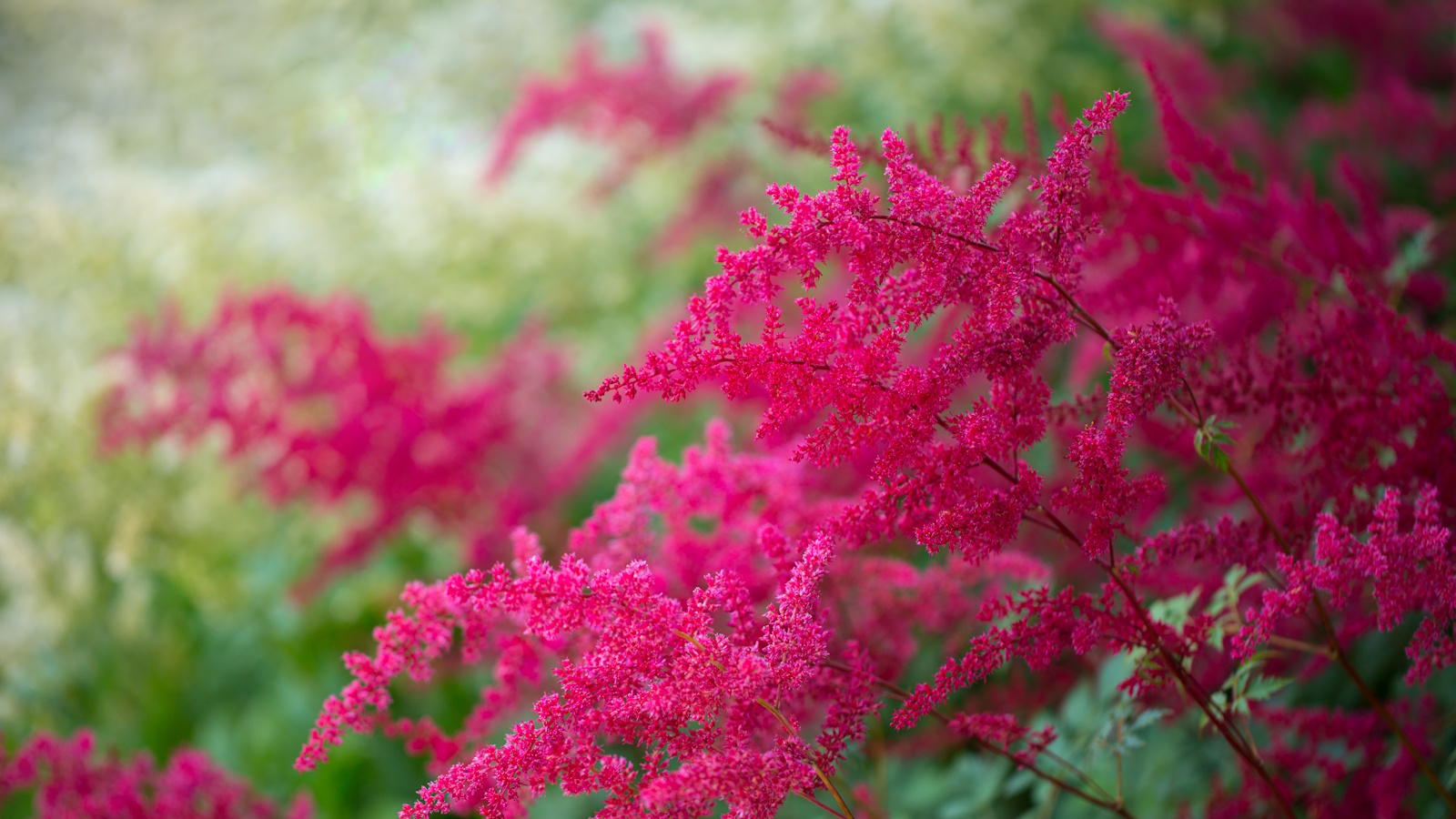 How to grow astilbe – expert advice on cultivating this shade-tolerant flowering perennial
How to grow astilbe – expert advice on cultivating this shade-tolerant flowering perennialShade-tolerant and pest-resistant - astilbe are hardy and tough perennials that can thrive in many settings
By Ellen Wells Published